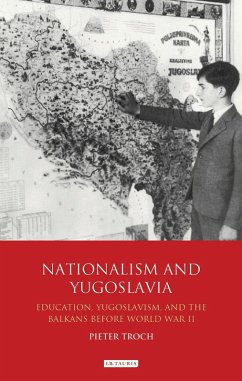Created after World War I, 'Yugoslavia' was a combination of ethnically, religiously, and linguistically diverse but connected South Slav peoples - Slovenes, Croats and Serbs but also Bosnian Muslims, Macedonians, and Montenegrins - in addition to non-Slav minorities. The Great Powers and the country's intellectual and political elites believed that a coherent identity could be formed in which the different South Slav groups in the state could identify with a single Balkan Yugoslav identity. Pieter Troch draws on previously unpublished sources from the domain of education to show how the state's nationalities policy initially allowed for a flexible and inclusive Yugoslav nationhood, and how that system was slowly replaced with a more domineering and rigid 'top-down' nationalism during the dictatorship of King Alexander I - who banned political parties and coded a strongly politicised Yugoslav national identity. As Yugoslav society became increasingly split between the 'pro-Yugoslav' central regime and 'anti-Yugoslav' opposition, the seeds were sown for the failure of the Yugoslav idea.
Nationalism and Yugoslavia provides a valuable new insight into the complexities of pre-war Yugoslavia.
Nationalism and Yugoslavia provides a valuable new insight into the complexities of pre-war Yugoslavia.



